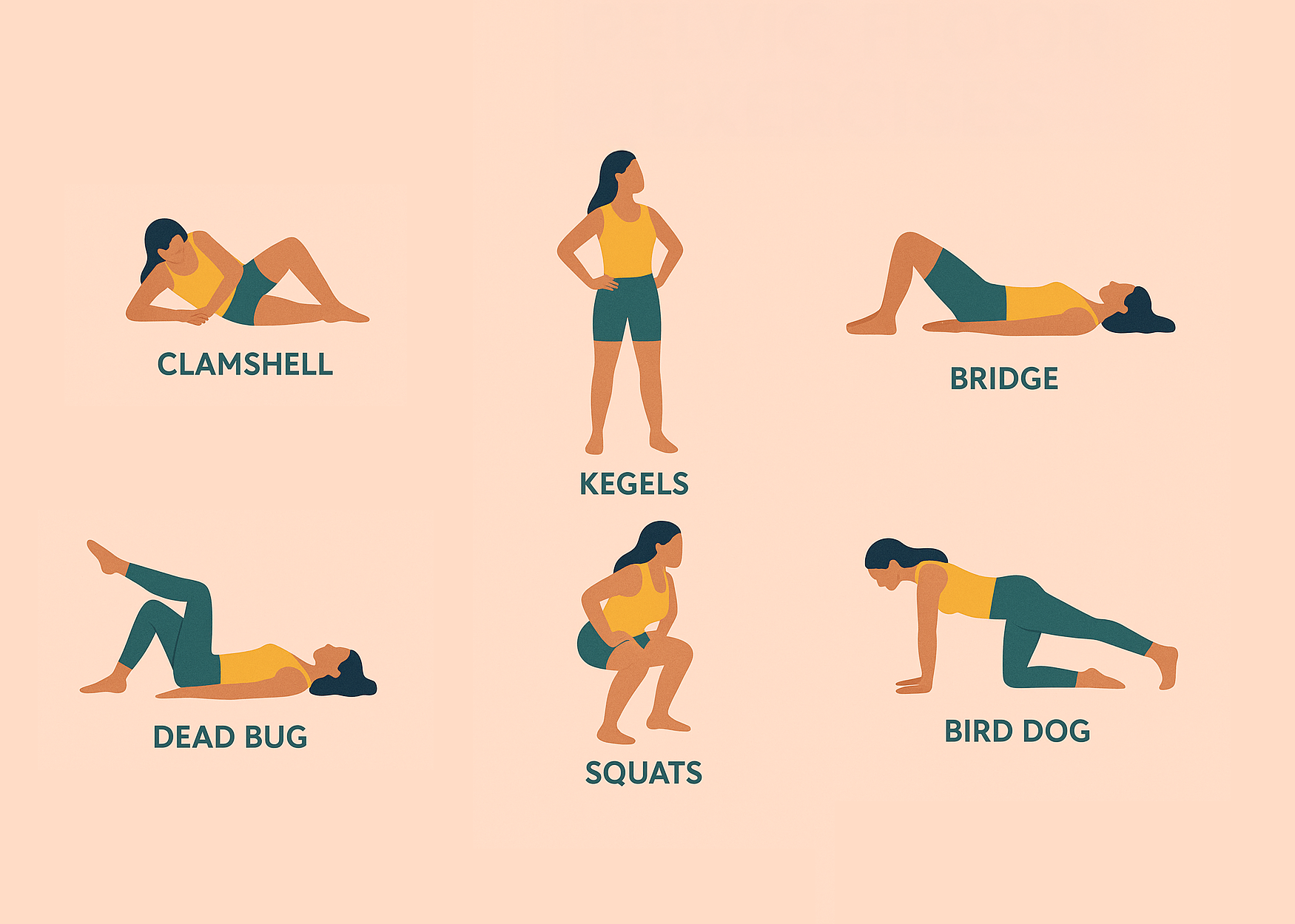Pelvic Floor Power: Why Kegels Are Your Best Friend
Why Pelvic Floor Health Matters
Your pelvic floor is a group of muscles and tissues that form a supportive hammock at the base of your pelvis. These muscles help support the bladder, uterus, and rectum—playing a critical role in bladder control, bowel function, and sexual well-being. When the pelvic floor is weak or damaged, it can lead to discomfort and a range of quality-of-life concerns.
What's Happening & Why
Pelvic floor dysfunction includes urinary incontinence (55.8% of women), pelvic pain (18.7%), prolapse (14%), and fecalincontinence (10.4%). These aren't minor inconveniences—they significantly impact quality of life, relationships, and self-confidence.
The postpartum picture is particularly troubling. 87% of women who had babies experience bladder leaks within two yearsof giving birth. 73% say painful sex began or worsened after childbirth. Yet 44% said healthcare providers didn't explainwhat's normal in postpartum recovery, and only 8% got pelvic floor PT.
We've normalized suffering. Women are told "that's just what happens after having kids" or "it's part of getting older." Butthese symptoms are treatable. The success rate for pelvic floor physical therapy is 65% or higher.
Risk factors include pregnancy and vaginal birth (but not exclusively—these issues affect women who've never given birthtoo), chronic constipation, heavy lifting, hormonal changes during menopause, chronic coughing, and high-impact exercise.
Signs Of A Weak Pelvic Floor
Pelvic floor dysfunction can occur after childbirth, with aging, or due to chronic strain. Symptoms may include:
Involuntary leaking when you cough, sneeze, or laugh
A heavy or bulging sensation in the vaginal area
Pain or discomfort during intercourse
Difficulty fully emptying the bladder or bowels
These signs are more common than you might think—and they’re treatable.
Kegel Exercise Basics
Kegel exercises are a simple, effective way to strengthen the pelvic floor. Here's how to get started:
Find the right muscles:
Imagine trying to stop urination midstream—that's your pelvic floor at work. (Note: Don't practice Kegels while urinating.)
Hold and release:
Contract these muscles and hold for 3–5 seconds, then relax for the same amount of time.
Repeat:
Aim for 10 repetitions per set and try to complete three sets daily.
Stay consistent:
Like any workout, consistency is key to results.
Beyond Kegels
While Kegels are powerful, they aren’t the only way to support pelvic floor health. Other options include:
Pelvic floor physical therapy: A specialist can assess your muscle function and tailor exercises to your specific needs.
Maintain a healthy weight: Extra weight can add pressure to the pelvic region.
Avoid straining: Chronic constipation or heavy lifting can stress these muscles—lift properly and keep your digestive system healthy.
Mind your posture: Good alignment helps support core and pelvic floor coordination.
Final Thoughts
Your pelvic floor deserves just as much attention as any other part of your body. Strengthening it can help prevent leaks, reduce discomfort, and enhance intimacy. Whether you’re recovering postpartum or simply want to feel stronger, it’s never too early—or too late—to start prioritizing pelvic floor health.


